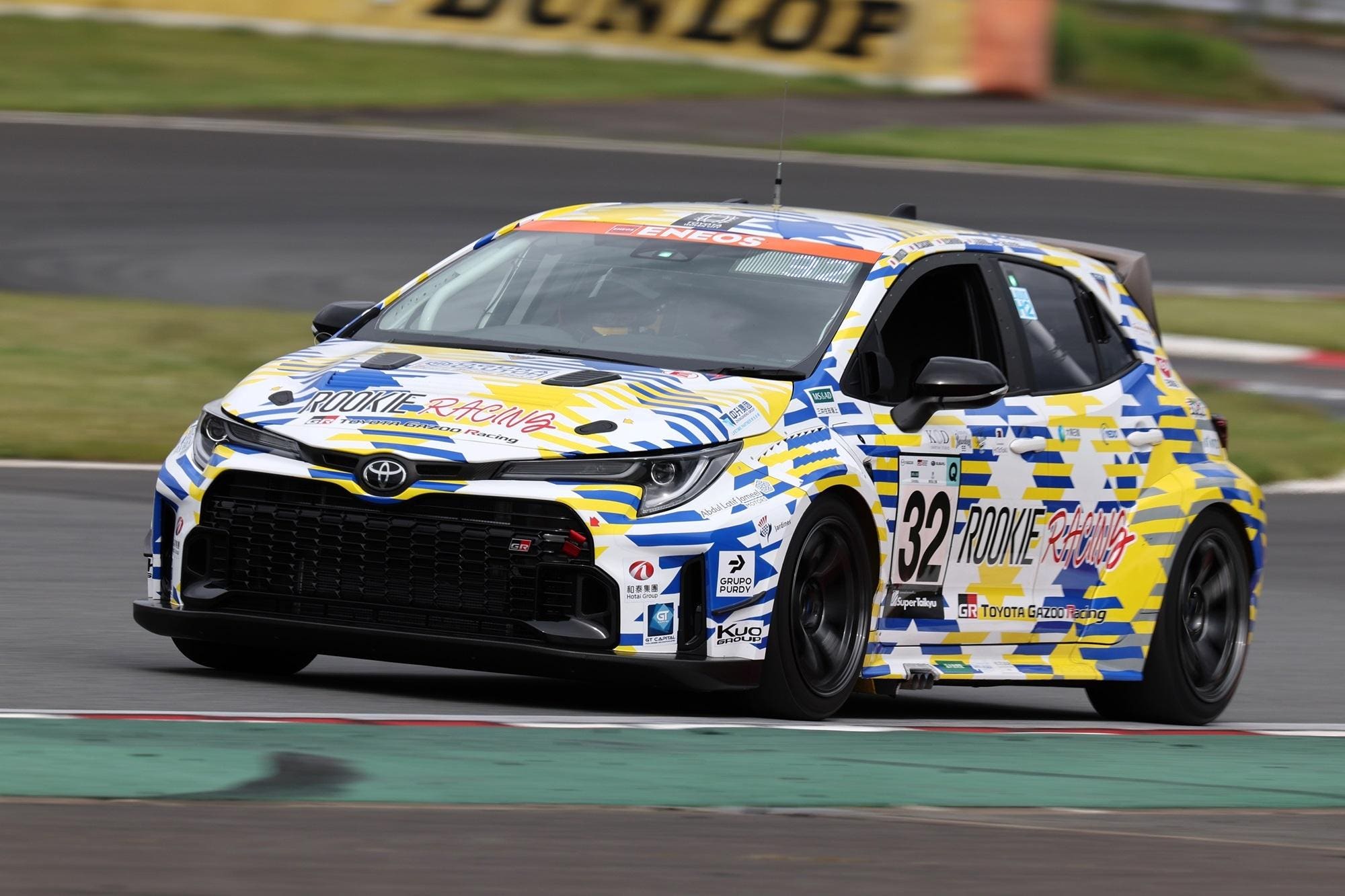NASCAR To Debut All-Electric Racecar, Sport’s Future Could Be Elsewhere However

The liquid hydrogen-powered Corolla that debuted at Fuji Speedway last year.
Toyota
NASCAR confirmed Tuesday that they will publicly reveal their first all-electric racecar at next month’s Clash at the L.A. Coliseum. The sanctioning body has tested the car extensively with driver David Ragan who will be behind the wheel of the prototype in Los Angeles.
Don’t expect to see an all-electric racer in NASCAR competition anytime soon though, if ever for that matter.
While the buzz in the automotive world has centered around the electrification of vehicles and their growth in the consumer space, the truth is that while the advance of their market share has gone up significantly it only comprises a little over 10% of the overall automotive market and is projected to grow to 17% by 2028.
Significant, yes. Game changing for NASCAR’s OEMs, perhaps not so much.
One thing that has remained a constant in NASCAR for manufacturers is the “win on Sunday, sell on Monday” philosophy. The lure for automotive manufacturers to NASCAR is the chance to show off vehicles on the track that closely resemble those sold in showrooms.
However, the talk of global warming has forced many governments, including in the U.S. to react with the goal of reducing the carbon footprint made by such things as coal, oil, and gas. The internal combustion engines that power most vehicles today add significantly to that footprint and to many electric vehicles seem to be the answer to that. One answer at least.
MORE FOR YOU
Former Toyota CEO and current chairman of the company Akio Toyoda has long advocated against auto manufacturers going all in on all electric vehicles. This week he said that he feels fully electric vehicles will never account for more than 30% of the total of global auto sales. He added that no matter the progress made with all-electric vehicles in the coming years,” hybrid vehicles, fuel cell electric vehicles, and hydrogen combustion engine vehicles will still constitute 70% of the automotive market.”
Toyoda made those remarks in an internal employee newsletter the Toyota Times, as translated by Google GOOG .
DETROIT, MI – JANUARY 09: Akio Toyoda (L), President and member of the board of directors at … [+]
Getty Images
Toyota has fallen behind other OEMs when it comes to developing all-electric vehicles. But that was by design. The company was instead focusing on multi-pathway products that use alternative powertrain technologies like hybrid and hydrogen combustion engines.”
And that’s a pathway that could make sense for NASCAR.
“The enemy is not the internal combustion engine. The enemy is carbon,” David Wilson group vice president and president of Toyota Racing Development, U.S.A. said summarizing Toyoda’s comments.
“There are supplemental technologies like hydrogen that can be run with an internal combustion engine with basically a zero-carbon footprint. So, we are not abandoning the internal combustion engine. I’ll state that just unequivocally.”
Wilson and Toyota invited a group of NASCAR executives last November to Japan. After visiting the Tokyo Auto Salon (Show) they went to Fuji Speedway in the foothills of Mount Fuji, in Oyama. There along with Akio Toyoda they watched a TKU Super Taikyu Race, an amateur-driven, production-based endurance sports car series that is similar to grassroots racing in America.
LAS VEGAS, NV – NOVEMBER 03: Toyota Racing Development USA President and General Manager David … [+]
NASCAR via Getty Images
Toyota fields a Corolla in the series, and it runs an internal combustion engine. An engine that isn’t powered by gasoline, but hydrogen. More specifically liquid hydrogen. Last year marked the first time in the world a vehicle raced with liquid hydrogen fuel. The goal for the visit to Fuji was for the NASCAR executives to not only see an internal combustion engine racecar fueled by something other than gasoline, but to see the infrastructure that would be needed to race using liquid hydrogen.
“From our point of view,” Wilson said. “When it comes to the adaptation of zero carbon or electrification (hydrogen) is much more suited to motorsports than battery electric ever will be, because the fact is that the fans are not going to embrace no noise.”
One of the issues critics point to when it comes to an all-electric racecar is that lack of engine noise from battery powered vehicles. That noise is a big part of the entertainment factor in the sport.
“If we cannot put on a show,” Wilson said.” …if we cannot fill those grandstands, then it’s all for not.”
NASCAR has talked about using hydrogen before and John Probst NASCAR SVP, and Chief Racing Development Officer confirmed Tuesday that not only has there been testing with an all-electric vehicle, the one that will make its public debut in Los Angeles, but with other technologies like hydrogen.
“There are going to be some things that you’re going to see,” Wilson said. “Whether it be on an exhibition level, some capabilities effectively that we’re working together on that can get us closer to some form of a more electrified and carbon neutral solution…it’s certainly a work in progress.”
As for when fans, and the rest of the industry will see a change.
“I think the ICE engine will be a common denominator for years to come,” Wilson said. “It could be supplemented with some sort of a hybrid component. It could be supplemented with a greener fuel (like) hydrogen.
“I think within five to 10 years, I think hydrogen could be a real potential solution… we’re actively just looking at the capabilities and the infrastructure requirement and a lot of the associated technologies that you need to sort out in order to race in anger. But I do not see the ICE engine component going away anytime soon.”

